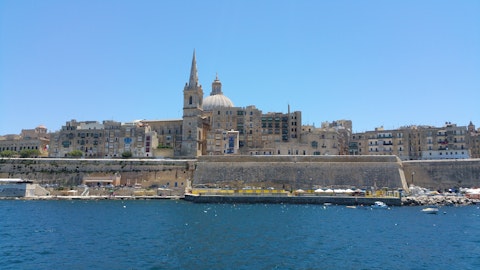Malta’s become the unexpected star of European business in recent years, and the numbers back it up. With 4.1% GDP growth this year (while most of Europe struggles to hit 2%), this tiny island nation punches way above its weight. More than 74,000 businesses call Malta home, with €92.1 billion in sales, which is not bad for a country you could drive across in an hour.

But the real reason people come here so much is taxes, and it’s one of the only countries where paying taxes actually makes sense. Companies pay 35% on paper, but shareholders can claim refunds that drop the effective rate to around 5%.
No dividend taxes, no royalty taxes – just simple benefits that work. Compare that to other EU countries where you’re looking at 50% combined taxes, and you’ll see why businesses keep moving here.
Also, Malta’s startup scene is exploding. In 2025 alone, 300 new startups added $1.2 billion to GDP. Fintech companies are growing 30% annually, gaming businesses 18%, and AI startups 25%. The government backs this growth with some real money – seed funding up to €200,000, tax credits reaching 45%, and a €10 million venture capital fund ready to invest.
Setting up shop here takes just 1-2 weeks and €1,165 in share capital (only 20% upfront). Registration costs €245 offline or €100 online – and that’s it. No bureaucratic nightmare, no endless paperwork… Just a couple of simple steps and you’re in business.
English is widely spoken, considered an official language alongside Maltese. About 90% of locals speak fluent English, and all business documents, contracts, and regulations come in English. You won’t waste time or money on translations or misunderstandings.
Big success stories prove the model works. Many have built global empires from here. Gaming giants thrive under Malta’s clear regulations – over 10% of Europe’s online gaming companies operate from the island.
The non-Gamstop casino sector particularly benefits from Malta’s balanced regulatory approach, serving international markets effectively. This allows them to offer higher returns and more generous bonuses than other casino sites (source: ukslotsnotongamstop.com). Also, some of the big banking players such as Bank of Valletta ($1.03 billion market cap) and HSBC Malta ($540 million), show the island handles serious financial business as well.
EU membership means instant access to 450 million consumers. You’re in the Eurozone and Schengen Zone, making the movement of goods, services, and people smooth. Malta sits perfectly between Europe and North Africa, which is ideal for businesses targeting multiple markets.
The government actively helps through Malta Enterprise, focusing on health tech, AI, fintech, clean technology, and logistics. They’ve even created specific laws such as the Digital Assets Act to attract crypto companies. The new innovation hub in Hal Far will house 50 companies focused on renewable energy and smart manufacturing.
But what really seals the deal is the overall quality of life. Over 300 sunny days yearly, crime rates so low you’ll forget to lock your door, and a work-life balance that can normally exist. Malta ranks in the top 3 destinations for expats – people come for business and stay for the lifestyle.
Malta has something rare to see nowadays – a proven business environment that has some real advantages without the usual European red tape. With unemployment under 3.5%, a skilled English-speaking workforce, and growth surpassing the EU average, it’s considered a real tax haven.





